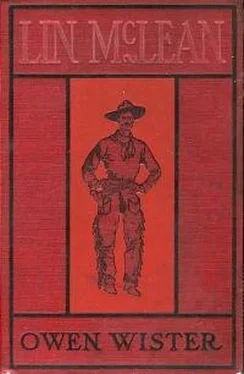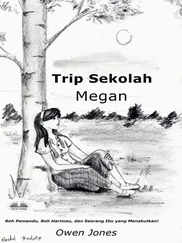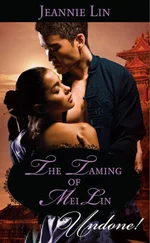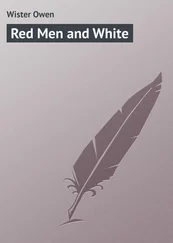Owen Wister - Lin McLean
Здесь есть возможность читать онлайн «Owen Wister - Lin McLean» весь текст электронной книги совершенно бесплатно (целиком полную версию без сокращений). В некоторых случаях можно слушать аудио, скачать через торрент в формате fb2 и присутствует краткое содержание. Жанр: Вестерн, на английском языке. Описание произведения, (предисловие) а так же отзывы посетителей доступны на портале библиотеки ЛибКат.
- Название:Lin McLean
- Автор:
- Жанр:
- Год:неизвестен
- ISBN:нет данных
- Рейтинг книги:3 / 5. Голосов: 1
-
Избранное:Добавить в избранное
- Отзывы:
-
Ваша оценка:
- 60
- 1
- 2
- 3
- 4
- 5
Lin McLean: краткое содержание, описание и аннотация
Предлагаем к чтению аннотацию, описание, краткое содержание или предисловие (зависит от того, что написал сам автор книги «Lin McLean»). Если вы не нашли необходимую информацию о книге — напишите в комментариях, мы постараемся отыскать её.
Lin McLean — читать онлайн бесплатно полную книгу (весь текст) целиком
Ниже представлен текст книги, разбитый по страницам. Система сохранения места последней прочитанной страницы, позволяет с удобством читать онлайн бесплатно книгу «Lin McLean», без необходимости каждый раз заново искать на чём Вы остановились. Поставьте закладку, и сможете в любой момент перейти на страницу, на которой закончили чтение.
Интервал:
Закладка:
"I will ask you one thing," said Lin, after ten miles.
The woman made no sign of attention as she rode beside him.
"Did I understand that she — Miss Buckner, I mean — mentioned she might be going away from Separ?"
"How do I know what you understood?"
"I thought you said—"
"Don't you bother me, Lin McLean." Her laugh rang out, loud and forlorn — one brief burst that startled the horses and that must have sounded far across the sage-brush. "You men are rich," she said.
They rode on, side by side, and saying nothing after that. The Drybone road was a broad trail, a worn strip of bareness going onward over the endless shelvings of the plain, visible even in this light; and presently, moving upon its grayness on a hill in front of them, they made out the wagon. They hastened and overtook it.
"Put your carbine down," said McLean to Lusk. "It's not robbers. It's your wife I'm bringing you." He spoke very quietly.
The husband addressed no word to the cow-puncher "Get in, then," he said to his wife.
"Town's not far now," said Lin. "Maybe you would prefer riding the balance of the way?"
"I'd—" But the note of pity that she felt in McLean's question overcame her, and her utterance choked. She nodded her head, and the three continued slowly climbing the hill together.
From the narrows of the steep, sandy, weather-beaten banks that the road slanted upward through for a while, they came out again upon the immensity of the table-land. Here, abruptly like an ambush, was the whole unsuspected river close below to their right, as if it had emerged from the earth. With a circling sweep from somewhere out in the gloom it cut in close to the lofty mesa beneath tall clean-graded descents of sand, smooth as a railroad embankment. As they paused on the level to breathe their horses, the wet gulp of its eddies rose to them through the stillness. Upstream they could make out the light of the Drybone bridge, but not the bridge itself; and two lights on the farther bank showed where stood the hog-ranch opposite Drybone. They went on over the table-land and reached the next herald of the town, Drybone's chief historian, the graveyard. Beneath its slanting headboards and wind-shifted sand lay many more people than lived in Drybone. They passed by the fence of this shelterless acre on the hill, and shoutings and high music began to reach them. At the foot of the hill they saw the sparse lights and shapes of the town where ended the gray strip of road. The many sounds — feet, voices, and music — grew clearer, unravelling from their muffled confusion, and the fiddling became a tune that could be known.
"There's a dance to-night," said the wife to the husband. "Hurry."
He drove as he had been driving. Perhaps he had not heard her.
"I'm telling you to hurry," she repeated. "My new dress is in that wagon. There'll be folks to welcome me here that's older friends than you."
She put her horse to a gallop down the broad road toward the music and the older friends. The husband spoke to his horse, cleared his throat and spoke louder, cleared his throat again and this time his sullen voice carried, and the animal started. So Lusk went ahead of Lin McLean, following his wife with the new dress at as good a pace as he might. If he did not want her company, perhaps to be alone with the cow-puncher was still less to his mind.
"It ain't only her he's stopped caring for," mused Lin, as he rode slowly along. "He don't care for himself any more."
PART III
To-day, Drybone has altogether returned to the dust. Even in that day its hour could have been heard beginning to sound, but its inhabitants were rather deaf. Gamblers, saloon-keepers, murderers, outlaws male and female, all were so busy with their cards, their lovers, and their bottles as to make the place seem young and vigorous; but it was second childhood which had set in.
Drybone had known a wholesome adventurous youth, where manly lives and deaths were plenty. It had been an army post. It had seen horse and foot, and heard the trumpet. Brave wives had kept house for their captains upon its bluffs. Winter and summer they had made the best of it. When the War Department ordered the captains to catch Indians, the wives bade them Godspeed. When the Interior Department ordered the captains to let the Indians go again, still they made the best of it. You must not waste Indians. Indians were a source of revenue to so many people in Washington and elsewhere. But the process of catching Indians, armed with weapons sold them by friends of the Interior Department, was not entirely harmless. Therefore there came to be graves in the Drybone graveyard. The pale weather-washed head-boards told all about it: "Sacred to the memory of Private So-and-So, killed on the Dry Cheyenne, May 6, 1875." Or it would be, "Mrs. So-and-So, found scalped on Sage Creek." But even the financiers at Washington could not wholly preserve the Indian in Drybone's neighborhood. As the cattle by ten thousands came treading with the next step of civilization into this huge domain, the soldiers were taken away. Some of them went West to fight more Indians in Idaho, Oregon, or Arizona. The battles of the others being done, they went East in better coffins to sleep where their mothers or their comrades wanted them. Though wind and rain wrought changes upon the hill, the ready-made graves and boxes which these soldiers left behind proved heirlooms as serviceable in their way as were the tenements that the living had bequeathed to Drybone. Into these empty barracks came to dwell and do business every joy that made the cow-puncher's holiday, and every hunted person who was baffling the sheriff. For the sheriff must stop outside the line of Drybone, as shall presently be made clear. The captain's quarters were a saloon now; professional cards were going in the adjutant's office night and day; and the commissary building made a good dance-hall and hotel. Instead of guard-mounting, you would see a horse-race on the parade-ground, and there was no provost-sergeant to gather up the broken bottles and old boots. Heaps of these choked the rusty fountain. In the tufts of yellow, ragged grass that dotted the place plentifully were lodged many aces and queens and ten-spots, which the Drybone wind had blown wide from the doors out of which they had been thrown when a new pack was called for inside. Among the grass tufts would lie visitors who had applied for beds too late at the dance-hall, frankly sleeping their whiskey off in the morning air.
Above, on the hill, the graveyard quietly chronicled this new epoch of Drybone. So-and-so was seldom killed very far out of town, and of course scalping had disappeared. "Sacred to the memory of Four-ace Johnston, accidently shot, Sep. 4, 1885." Perhaps one is still there unaltered: "Sacred to the memory of Mrs. Ryan's babe. Aged two months." This unique corpse had succeeded in dying with its boots off.
But a succession of graves was not always needed to read the changing tale of the place, and how people died there; one grave would often be enough. The soldiers, of course, had kept treeless Drybone supplied with wood. But in these latter days wood was very scarce. None grew nearer than twenty or thirty miles — none, that is, to make boards of a sufficient width for epitaphs. And twenty miles was naturally far to go to hew a board for a man of whom you knew perhaps nothing but what he said his name was, and to whom you owed nothing, perhaps, but a trifling poker debt. Hence it came to pass that headboards grew into a sort of directory. They were light to lift from one place to another. A single coat of white paint would wipe out the first tenant's name sufficiently to paint over it the next comer's. By this thrifty habit the original boards belonging to the soldiers could go round, keeping pace with the new civilian population; and though at first sight you might be puzzled by the layers of names still visible beneath the white paint, you could be sure that the clearest and blackest was the one to which the present tenant had answered.
Читать дальшеИнтервал:
Закладка:
Похожие книги на «Lin McLean»
Представляем Вашему вниманию похожие книги на «Lin McLean» списком для выбора. Мы отобрали схожую по названию и смыслу литературу в надежде предоставить читателям больше вариантов отыскать новые, интересные, ещё непрочитанные произведения.
Обсуждение, отзывы о книге «Lin McLean» и просто собственные мнения читателей. Оставьте ваши комментарии, напишите, что Вы думаете о произведении, его смысле или главных героях. Укажите что конкретно понравилось, а что нет, и почему Вы так считаете.










